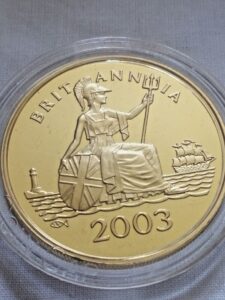If you own 1OZ Gold Britannia or are thinking of buying some, you’ve probably wondered which form—coins or bars—is easier to sell and which one will put more money in your pocket. When it comes time to find a buyer, coins and bars don’t behave the same way, and understanding why can help you make smarter decisions.

Let’s start with gold coins. Well-known issues like the Gold Britannia or the Sovereign carry instant recognition. Dealers, collectors, and investors see those coins and know exactly what they’re getting—weight, purity, history, and brand all in one glance. That built-in confidence often translates into quicker sales and sometimes even a price above the metal’s spot value, especially if the coin is in pristine condition or comes from a sought-after year. Coins also shine when you want to sell small quantities. Need to cash in just one ounce or even half an ounce? Selling a single coin is straightforward, whereas you’d struggle to cut a chunk off a larger bar.
Gold bars, by contrast, trade closer to the raw gold price. If you present a 1-kilogram bar from a reputable refinery with its assay card and serial number, you’ll likely receive a bid very near the spot price multiplied by its weight. Bars don’t usually carry the extra collector premiums that coins do, so you avoid the spread between buy and sell prices. That makes bars a solid choice for large, one-off transactions. However, because bars lack the universal recognition of major coin issues, you might find some secondary-market buyers hesitant if the brand is unfamiliar or if the bar arrives without proper documentation. In those cases, offers can dip well below spot.
Your location and tax rules can tip the balance too. In the UK, Britannia and Sovereign coins are exempt from Capital Gains Tax, making them especially appealing sellers’ options. Bars don’t carry that same exemption, so you could owe tax on any profit—something to factor in when deciding what to offload first.
Presentation matters as well. Whether you’re selling coins or bars, scratches, dings, or missing packaging can shave off value. Keeping your gold in protective capsules or sealed bar packaging can help ensure you get the best possible price when the time comes.
In the end, if you’re after small, flexible sales with potential premiums, gold coins are the way to go. If you need to move large sums of metal with minimal markup, gold bars will deliver value closer to the spot price. The right choice depends on how much you plan to sell, whether you want maximum cash or maximum convenience, and how you balance tax considerations in your region.